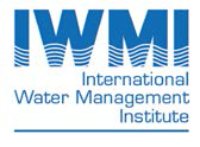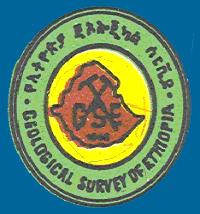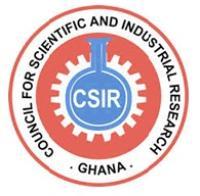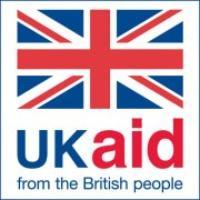Activities
The project is structured in two phases, with overall outputs being delivered through inter-related work packages (WP’s) addressing the research objectives:
a) Understand shallow ground-water resources; aquifer recharge and storage; inter-annual variability; impact of future trends (climate, land-use); groundwater/surface water interactions.
b) Assess gendered opportunities and constraints for poor people to benefit from groundwater use in small-scale irrigation; determine the nature of poverty; provide a gendered analysis of inter-household and intra-household equity; initiate action research on appropriate technologies.
c) Explore policies, regulations and institutions required for management of shallow groundwater; participatory evaluation of scenarios for development and rules for resource management at local community level; evaluation of resource constraints and rules for management at resource unit scale.
d) Develop tools for adaptive management by local communities; enable capacity building for participatory resource monitoring and management; assess development options within existing and modified policy and regulation contexts.
Table 1: Outline of project structure and work packages
|
Output 1 Shallow ground-water resource investigated and opportunities and constraints for poor people to benefit from use in small-scale irrigation understood |
Output 2 Policies, regulations and institutions required for adaptive management of shallow groundwater resources for poverty reduction understood |
||||||
|
WP1 |
WP2 |
WP3 |
WP4 |
WP5 |
WP6 |
WP7 |
WP8 |
|
Physical resource assessment |
Climate / land-use assessment |
Technical options evaluation |
Socio-economic assessment |
Governance institutions assessment |
Management tool development |
Community options evaluation |
Policies and regulations evaluation |
WP1: Investigate shallow groundwater resource and interactions between groundwater/stream-flow and deep/shallow aquifers.
|
Task 1.1 |
Hydrogeological investigations to improve knowledge of shallow aquifers |
|
Deliverables |
a) Preliminary assessment of potential of shallow aquifers in Ethiopia, Ghana and South Africa b) Geophysical surveys completed at two sites in Ethiopia and two sites in Ghana |
|
Task 1.2 |
Develop groundwater model based on existing knowledge and available data |
|
Deliverables |
a) Groundwater model created for one site in Ethiopia and one site in Ghana b) Groundwater model created for second site in Ethiopia and in Ghana |
|
Task 1.3 |
Participatory monitoring of springs, wells, streams and rainfall |
|
Deliverables |
a) Participatory mapping; investigate local knowledge at study sites in Ethiopia and Ghana b) Select/train observers; choose monitoring points; install equipment in all sites |
WP2: Investigate influence of climate variability and land-use change on recharge to and resource availability in shallow aquifers.
|
Task 2.1 |
Time series analysis of historical hydromet data to establish risk to rainfed cropping and irrigation benefit |
|
Deliverables |
Simulate crop production over 30 year period using AQUACROP model for study sites in Ethiopia and Ghana |
|
Task 2.2 |
Downscaling climate scenario data to assess influence of variability on recharge and groundwater storage |
|
Deliverables |
a) Develop climate scenarios for Ethiopia and Ghana b) Model recharge and storage over 30 year period (using deliverable 1.1.1) |
|
Task 2.3 |
Investigate effects of land-use on recharge; examine influence of water harvesting |
|
Deliverables |
Model influence of land use for selected sites in Ethiopia and South Africa; assess benefit of water harvesting intervention |
WP3: Participatory evaluation of technical options for groundwater access and use and required forward-backward linkages in technology value chain.
|
Task 3.1 |
Action research on manual drilling and improved wells in shallow aquifers |
|
Deliverables |
a) Demonstration/test drilling completed at two sites in Ethiopia b) Demonstration/test drilling completed at two sites in Ghana c) Participatory evaluation |
|
Task 3.2 |
Action research on options for pumping and irrigation; scope for optimising water productivity through deficit irrigation |
|
Deliverables |
a) Evaluation of options for shallow wells and small-scale irrigation b) Participatory on-farm trials of deficit irrigation in South Africa |
|
Task 3.3 |
Investigate enabling environment to promote gender equitable adoption of groundwater irrigation. To investigate the supply chain for shallow water pumps |
|
Deliverables |
a) Report on enabling environment in Ethiopia b) Report on enabling environment in Ghana c) Report on enabling environment in S Africa |
WP4: Exploration of opportunities and constraints for poverty reduction differentially for men and women in farming households and communities through adoption of shallow groundwater use.
|
Task 4.1 |
Gender disaggregated assessment within and between households of poverty and capabilities |
|
Deliverables |
Describe poverty in the study sites in Ghana and Ethiopia using capabilities approach and participatory techniques |
|
Task 4.2 |
Gender disaggregated analysis of market access for inputs and outputs; influences on adoption of irrigation |
|
Deliverables |
a) Identify gendered effects of market involvement for both inputs and outputs to the household economy b) Identify actions necessary to increase benefits for poor households |
|
Task 4.3 |
Gendered household level cost-benefit analysis of groundwater irrigation |
|
Deliverables |
a) Analysis of the economic contribution of SGI. b) Combine quantitative and qualitative data to identify key poverty characteristics in relation to SGI uptake |
WP5: Investigate institutions of governance (formal and informal), in particular how they support/constrain equitable access to shallow groundwater.
|
Task 5.1 |
Longitudinal study of 15 years post-apartheid experience in South Africa; performance of water resources (and groundwater) governance |
|
Deliverables |
Paper on groundwater governance in S Africa and transferable lessons for SSA |
|
Task 5.2 |
Study of water user associations for small scale irrigation in Ethiopia and Ghana; transferable lessons for management of shallow groundwater |
|
Deliverables |
a) Evaluation of water user associations in Ethiopia b) Evaluation of water user associations in Ghana |
|
Task 5.3 |
Study of existing formal and informal rules and emerging institutions for participatory management of shallow groundwater using a pIAD approach in Ethiopia and Ghana. |
|
Deliverables |
Evaluation of existing formal/informal rules and emerging institutions for local management of shallow groundwater in Ethiopia and in Ghana |
WP6: Participatory development and testing of GIS based tool to assist in adaptive management of shallow groundwater.
|
Task 6.1 |
Develop capability of the groundwater model to incorporate new data from participatory monitoring (Task 1.1.3) |
|
Deliverables |
Groundwater model (deliverable 1.1.1) further developed to include self-learning capability using monitoring data (from deliverable 1.1.3) |
|
Task 6.2 |
Validate self-learning capability of the model using participatory monitoring data |
|
Deliverables |
Adapted groundwater model (deliverable 2.2.1) tested using data from at least one site in Ethiopia and one site in Ghana over two seasons |
|
Task 6.3 |
Evaluate transferability of the tool for management of shallow groundwater at local level |
|
Deliverables |
Model evaluated by and transferred to staff within target institutions in Ethiopia and Ghana |
WP7: Participatory evaluation of menu of options to achieve equitable and sustainable use of shallow groundwater at community level.
|
Task 7.1 |
Participatory resource assessment; investigate issues affecting use of shallow groundwater at study sites in Ethiopia and Ghana |
|
Deliverables |
Improved understanding of constraints and opportunities such as multiple use issues |
|
Task 7.2 |
Develop scenarios for use of shallow groundwater; incorporate knowledge from activities 1.1, 1.2, 1.3 and 1.4. |
|
Deliverables |
Participatory development of options for use of shallow groundwater at local scale and resource unit scale in Ethiopia and in Ghana |
|
Task 7.3 |
Explore groundwater use scenarios; examine how the rules of the game facilitate (or their absence hinders) equitable access and livelihood benefit as defined in WP4. |
|
Deliverables |
Participatory evaluation of rules for management within the local governance framework (5.3) using options from 7.2 and model in Ethiopia and in Ghana |
WP8: Evaluation of policies and regulations required at resource unit and national/regional scales to achieve equitable and sustainable use of shallow groundwater.
|
Task 8.1 |
Assess knowledge and skills of technical cadre with responsibility for resource management; capacity building |
|
Deliverables |
Knowledge and skills of technical cadre assessed and capacity building needs identified with partners in Ethiopia and Ghana |
|
Task 8.2 |
Explore groundwater use scenarios; explore how the rules of the game facilitate (or their absence hinders) good management of shallow groundwater |
|
Deliverables |
Participatory evaluation of rules for management at resource unit level using options from 2.3.2 and model (a) in Ethiopia; and (b) in Ghana and lessons from WP5 |
|
Task 8.3 |
Identify policies and regulations required at resource unit and national/regional scales; incorporate knowledge from task 2.1 and WP5. |
|
Deliverables |
Policies/regulations required at resource unit and national/regional scales to achieve equitable and sustainable use of shallow groundwater in SSA |
Phase 1 activities (July 2014 to July 2015) have allowed proof-of-concept testing of the underlying rationale for the research while also allowing close consultation with stakeholders and consortium partners in developing the strategy and methodology for the research. Research sites have been identified (see notes on study sites). Preliminary assessment of the shallow groundwater resource and management challenges at Dangila site in Ethiopia has been completed (see outputs).





